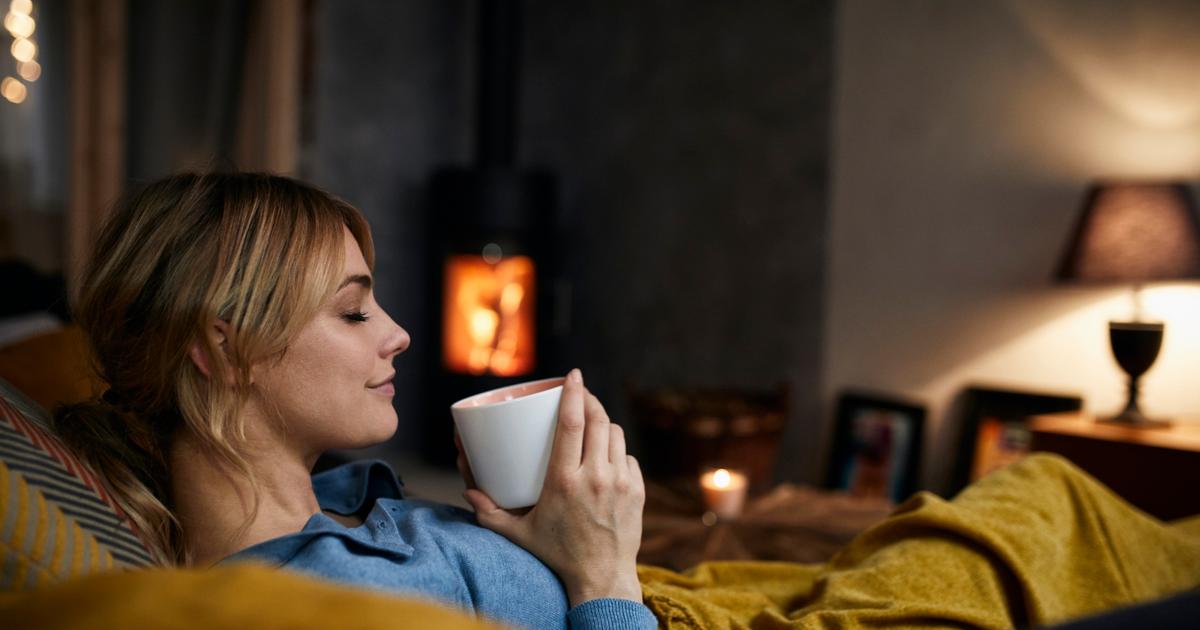Image of the head snuggled up against the pillow on a starry and navy blue background, promises of “peaceful” and “relaxing” nights… Packets of herbal teas from the supermarket often present themselves as true sleep allies.
A pure product of herbal medicine, they contain, depending on the brand, different aromatic plants whose active ingredients promote sleep and prevent nocturnal awakenings.
But what is it really?
To read alsoHow to choose melatonin, the crutch of some in the face of sleep disorders?
Little scientific evidence
Hops, orange blossom, chamomile, verbena, lavender, marjoram, passion flower, linden… These plants are in the composition of most of our tea bags but for the time being, no rigorous scientific study has demonstrated their effectiveness. on sleep, confirms Nicolas Authier, psychiatrist and pharmacologist (1).
"No drug reimbursed for sleep has been developed from these substances because there is not enough evidence," he says.
Herbal tea, like all other herbal products, is based on observational studies and not true scientific evaluations.
In video, five signs that show that you are in sleep debt
The most successful clinical trials, but with a "very low level of evidence" on arrival, concern lavender, eschscholtzia (nicknamed the California poppy) and valerian, reports Patrick Lemoine, psychiatrist specializing in sleep (2 ).
“It is suggested that these plants would stimulate the activity of gabaergic neurotransmitters, also called Gaba.
These play a role in our nervous activity and “slow down” our brain, which can contribute to falling asleep”, reports the doctor.
It is suggested that these plants would stimulate the activity of gabaergic neurotransmitters, which play a role in our nervous activity and "slow down" our brain
Patrick Lemoine, sleep specialist psychiatrist
The only drawback (and not the least), the most studied plant and "very moderately effective", valerian, "really smells like the feet", teaches us Professor Pierre Philip, head of the university department of sleep medicine at the University Hospital of Bordeaux (3).
So you have to be motivated enough to consume it in its raw form.”
Placebo effect
If the active ingredient of the herbal tea does not affect the quality of our nights, health professionals do not rule out a potential “placebo effect”.
"If the consumer is more sensitive to the natural character of products derived from the plant, he will believe more in their effectiveness", observes the psychiatrist and pharmacologist Nicolas Authier.
This is particularly the case with CBD herbal teas, which are emulated by those angry at the pillow.
“Its anxiolytic action has not yet been demonstrated, especially on a low dosage such as that contained in herbal teas.
Here, the placebo effect works for some, because it is reinforced by the marketing of “well-being cannabis”, underlines the health professional.
Read alsoEfficacy, legality, risks… What you need to know before testing CBD
In addition to this placebo effect, it should also not be forgotten that the evening infusion is an integral part of a relaxing bedtime ritual.
“Drinking herbal tea, like reading in your living room before sleeping, is one of the soothing strategies that can help reduce pre-sleep anxiety, when it is present,” reports sleep specialist Pierre Philip.
“By ritualizing this moment, it is possible to create a reassuring cognitive attachment.
In the long term, we mainly consume it out of a need for reassurance”, continues Nicolas Authier.
In the long term, we mainly consume it out of a need for reassurance.
Nicolas Authier, psychiatrist and pharmacologist
If the placebo effect works, be careful not to bet everything on it, insists Professor Pierre Philip.
According to the doctor, the herbal tea can work the first nights but it remains a bandage on a wooden leg.
“A recent study shows 71% of sleep complaints among the French population.
In question: a spectacular increase since the first confinement of sleep disorders, and a massive variation in sleep durations between the week and the weekend.
Read alsoWhat you should do to fall back asleep after waking up in the middle of the night
In general, instead of herbal tea or any other substance, the specialist insists on the importance of implementing rigorous sleep hygiene, namely getting up at the same time, every day, weekend. including, and the implementation of non-drug soothing strategies, such as cardiac coherence, relaxation or sophrology exercises.
Zero liquid before bed
By filling our bladder before bedtime, the infusion can also have a major drawback and "cause nocturnal risings", says psychiatrist Patrick Lemoine.
In general, the closer bedtime approaches, the more it is necessary to moderate all liquid intake, including herbal tea and water.
Not to mention that the phenomenon increases over time.
As the psychiatrist explains, "regardless of individual physiology, the older you get, the more the volume of the bladder shrinks and leads to more pressing needs at night, especially in men."
(1)
Doctor I have pain in my sleep
, by Patrick Lemoine, Éditions Odile Jacob, 256 pages, €21.90.
(2)
Le petit livre du CBD
, by Nicolas Authier, Editions First, 160 pages, €2.99.
(1)
Relearn how to sleep to be healthy
, by Pierre Philip, Éditions Albin Michel, 208 pages, €19.90.

